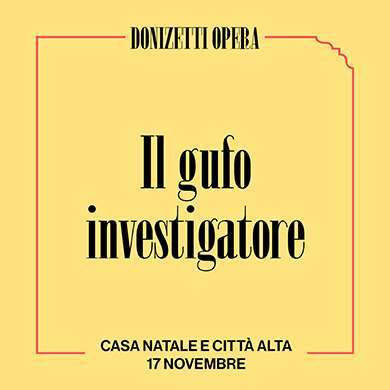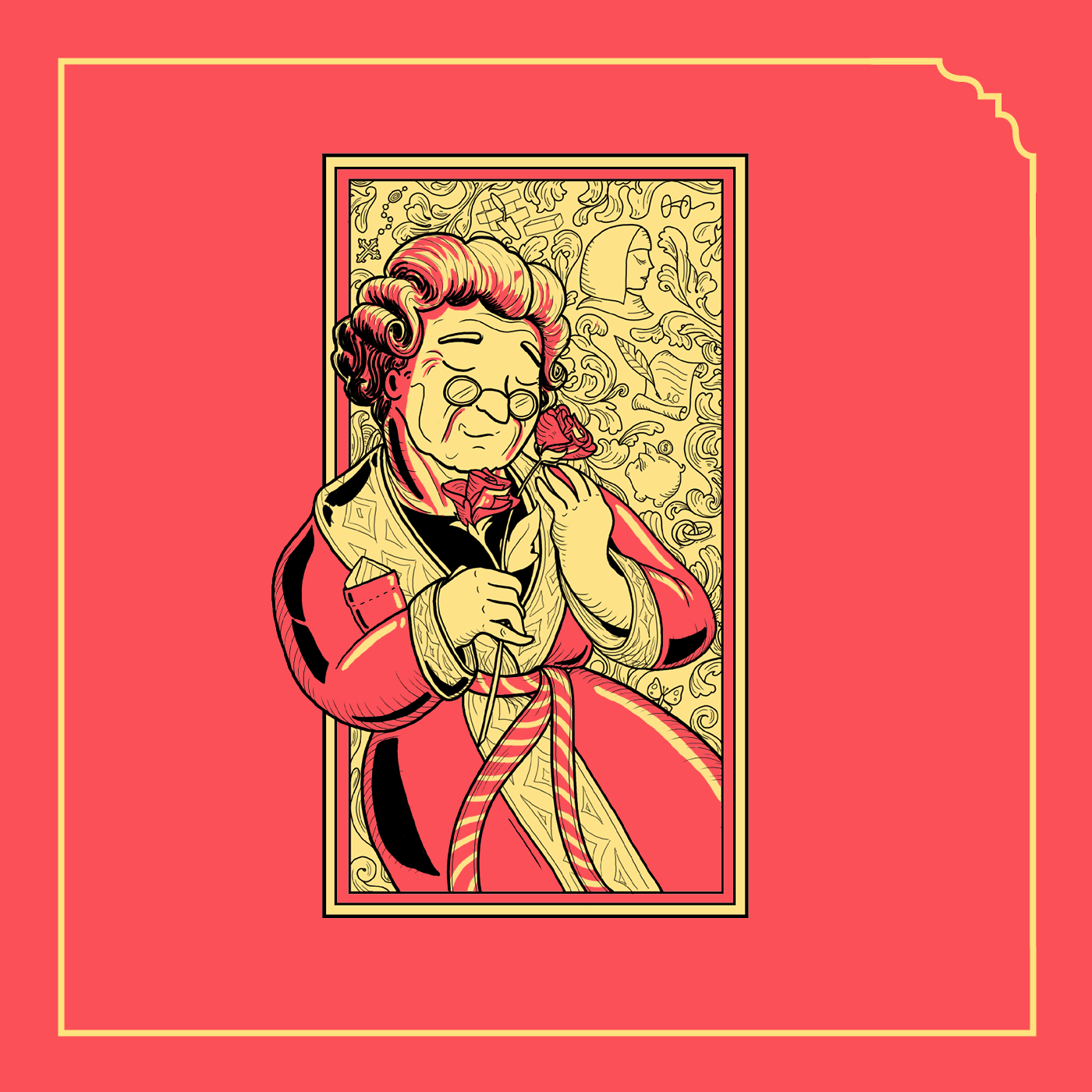Il gufo investigatore
Casa Natale e Bergamo Alta via Borgo Canale 14, BergamoThe investigator owl, a compelling step-by-step journey through the streets of Città Alta to unearth the key words that will help you write the libretto for Gaetano Donizetti's next opera . Can you believe it? Between Felice Romani, a great librettist who also wrote several operas set to music by Donizetti, and our Gaetano it was not all smooth sailing at the beginning of their collaboration, so much so that Donizetti is asking you to help him for his next opera. Ready to get going? We start from Donizetti's Birthplace, at 14 Borgo Canale Street. The first rehearsals are right in there. Tickets 5 € single ticket including entrance to the Birth House. Departures every 30 minutes
Don Pasquale
Teatro DonizettiDramma buffo in three acts by Giovanni Ruffini Music by Gaetano Donizetti First performance: Paris, Théâtre-Italien, January 3, 1843 Critical edition edited by Roger Parker and Gabriele Dotto © Casa Ricordi, Milan with the collaboration and contribution of the City of Bergamo and the Fondazione Teatro Donizetti INTRODUCTION In 1843, Gaetano Donizetti was one of Europe's most celebrated opera singers and divided his time between Italy, Vienna and Paris. It was here, on Jan. 3, that he had Don Pasquale performed at the Théâtre-Italien, a Parisian outpost of Italian opera equipped with an exceptional singing company. Donizetti recycled an old libretto written by Angelo Anelli for Stefano Pavesi, Ser Marcantonio, and had it freshened up by a Mazzinian exile, Giovanni Ruffini, but imposing so many and such changes on him that he was, in practice, co-author. The libretto would later be published anonymously under the initials "M. A.," which stands for Donizetti's Parisian factotum, the prestanome Michele Accursi. The opera was an immediate success and is one of not many Donizetti titles to have never left the repertoire, albeit in often heavily tampered with and incorrect editions. At the Donizetti Opera, the new critical edition edited by Roger Parker and Gabriele Dotto will be presented for the first time. In Don Pasquale, Donizetti reworks the most predictable and banal of comic events, already brought to the stage countless times. All the characters are classic: the buffo gabbato, the viperous primadonna, the sighing tenor, the wily baritone. However, Don Pasquale is not only the last masterpiece of the great Italian buffa tradition, but also the first of the new times. Woven with waltzes and galop - the music of its time - the bourgeois comedy looks ironically to the past but is imbued with romantic lyricism: the moment when Norina slaps Pasquale is almost tragic, and the whole opera thrives on a wonderful balance of laughter and tears. The Festival presents it in a staging by the Opéra de Dijon, signed by the celebrated German director Amélie Niermeyer, directed by Iván López Reynoso and featuring two stars of the international opera scene such as Roberto de Candia and Javier Camarena, joined by the young talents of the Bottega Donizetti. PLOT In Rome, rich old Don Pasquale da Corneto has decided to disinherit his nephew Ernesto, who is guilty of refusing the hand of a rich spinster because he is in love with Norina, a beautiful and witty but poor young widow. Despite his age, in order to have an offspring Don Pasquale therefore decides to marry and instructs Dr. Malatesta to find him a wife. Malatesta, who is actually very friendly with Ernesto, extols to him the virtues of his "sister" Sofronia, who is not only beautiful but also a model of domestic virtue and feminine modesty. Don Pasquale unceremoniously kicks Ernesto out of the house, while Malatesta joins Norina to instruct her in the part of Sofronia, which the girl masters perfectly. We are at the moment of the


